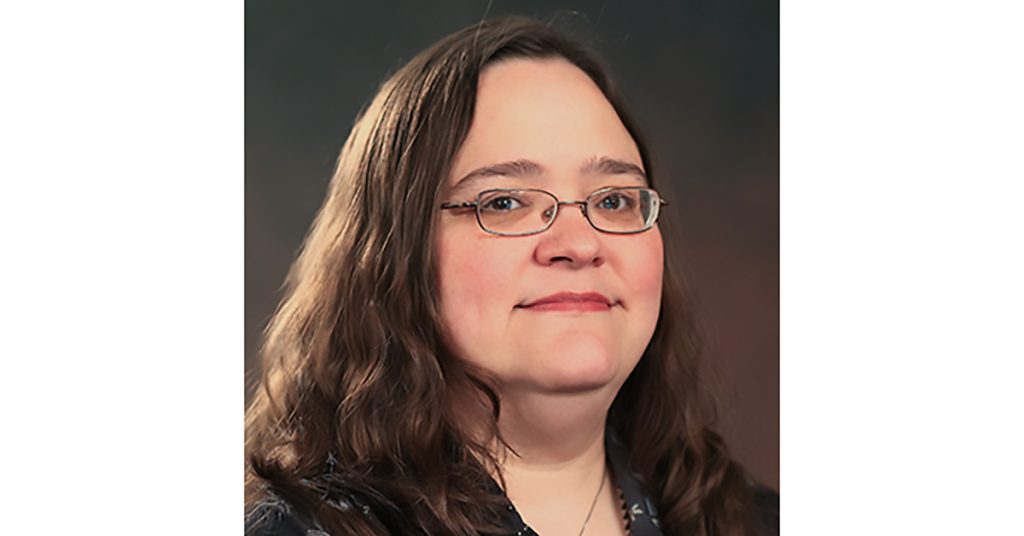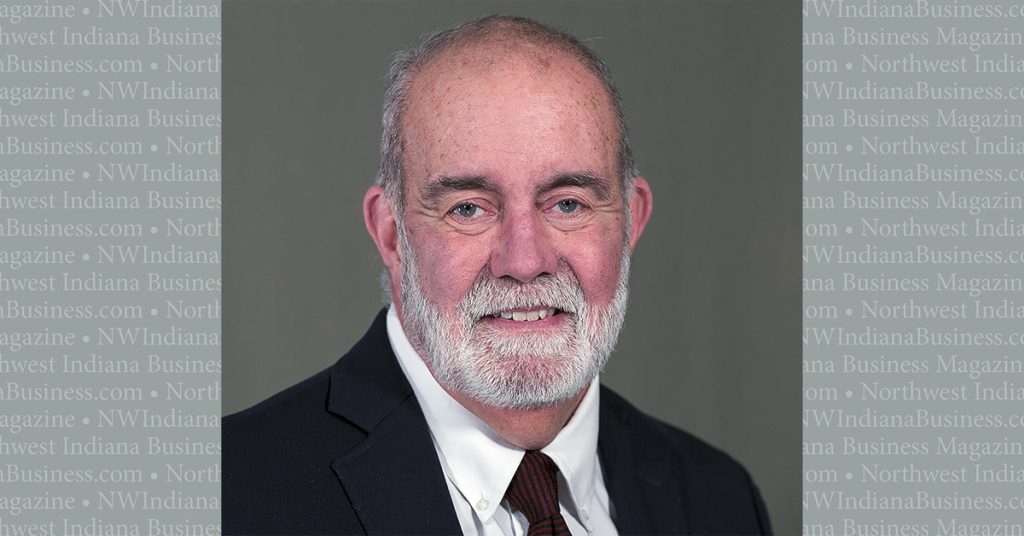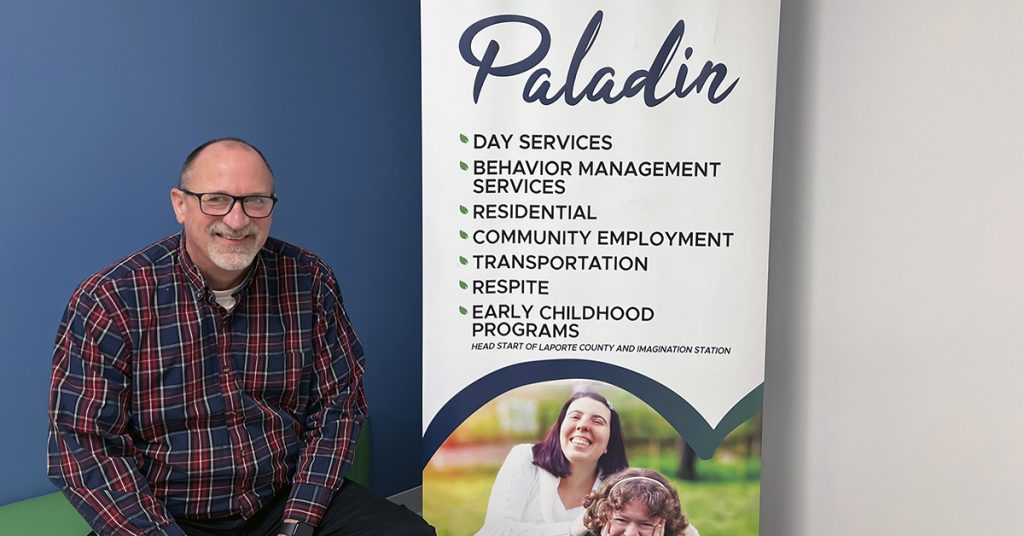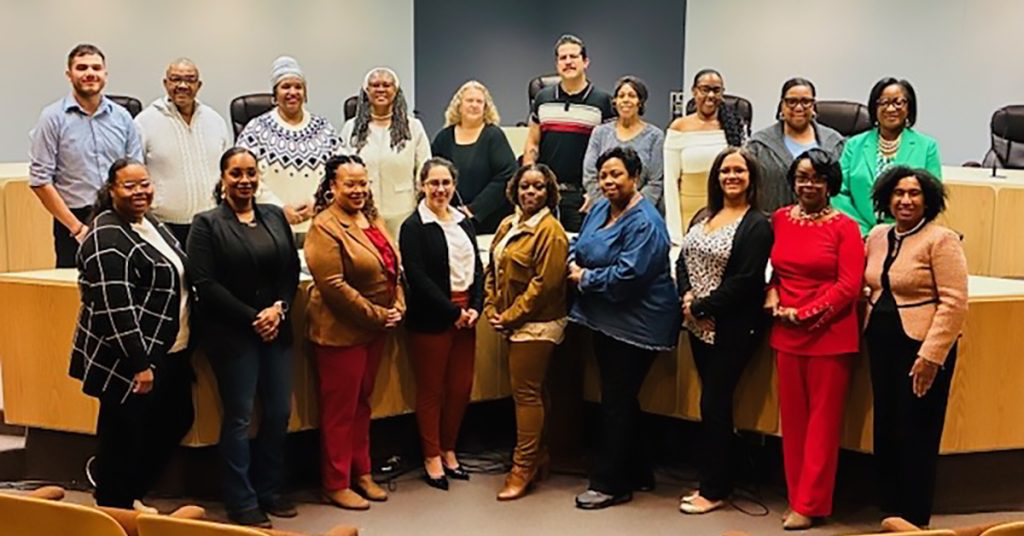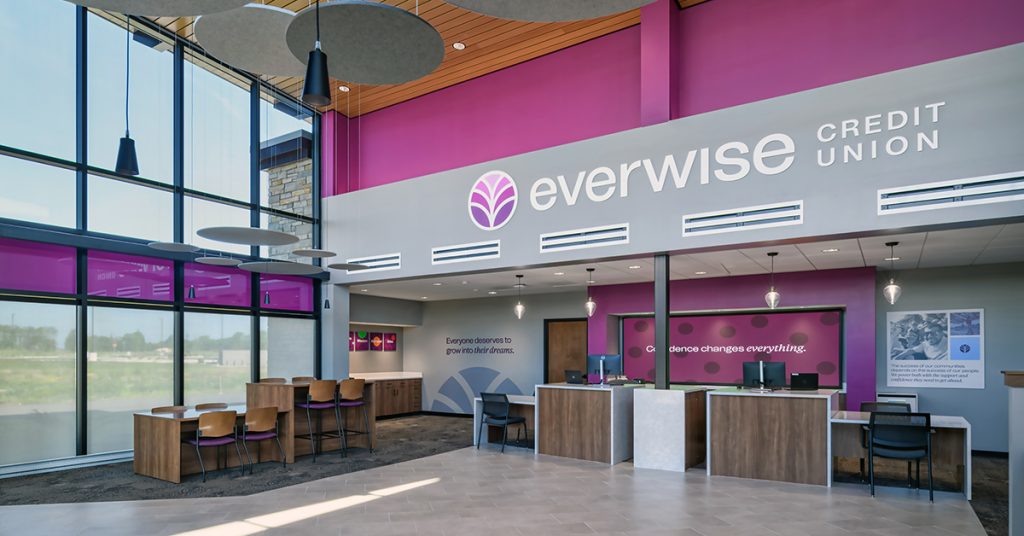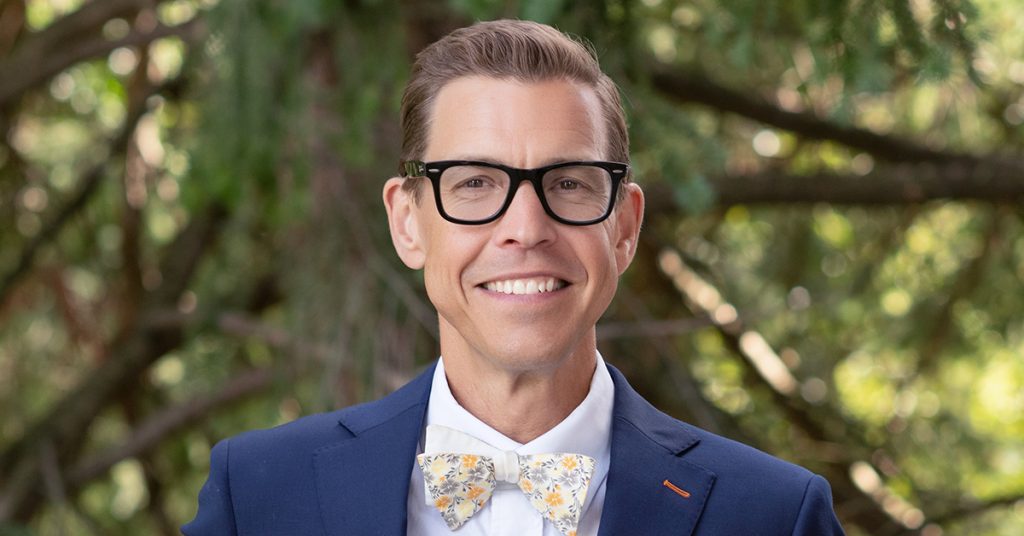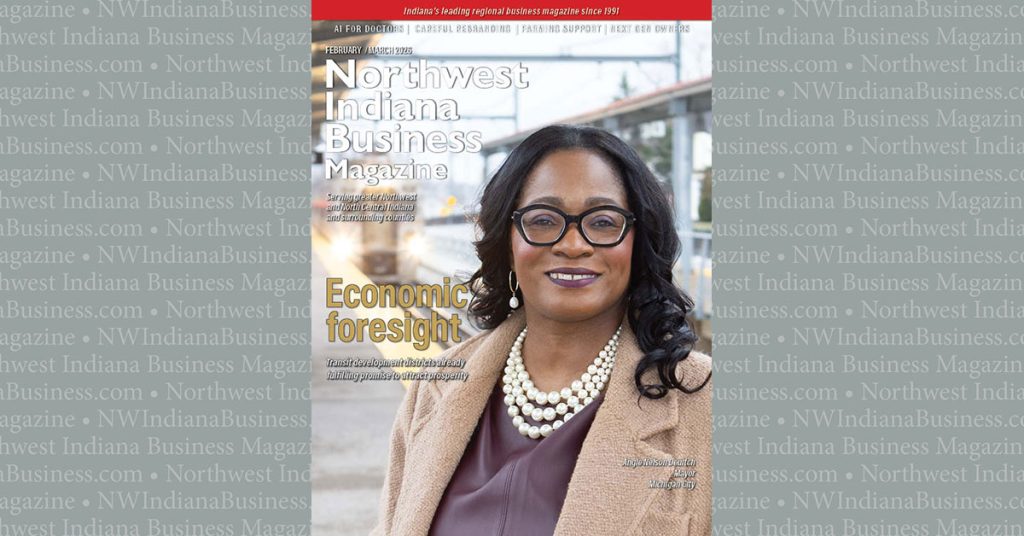
Banks, credit unions offer latest technology — and good old-fashioned service
Some things never change in Northern Indiana’s banks, like spacious lobbies or pens chained to check writing counters.
But banking has progressed from dollars and cents to apps and Zelle and other ingenious online transaction systems. Pioneering consumers crave these online banking services that large financial institutions push — particularly tech-heavy banking giants and internet-only neobanks that substitute automation for branch offices and manual labor.
Regional banking leaders say they have the keys to those financial technology gateways to match their competitors. But they also have their own secret sauce: homegrown loan officers, branch managers, market directors and CEOs grounded in their communities’ values.
Notre Dame Federal Credit Union opened its Whiting branch four years ago.
“Our leadership has ties to the area and knows how strong and tight-knit a community is, and so do I. I grew up here,” said Jesse Hunt, the credit union’s Northwest Indiana market director.
He also graduated from Whiting’s George Rogers Clark High, which closed at the end of the 2020-2021 school year.
This kind of shared history allows bankers to connect with their clients.
“Our team members live and work in the same communities as our clients, which allows us to provide local insights and responsive support that national or digital-only institutions simply can’t match,” said Joe DiNicolantonio, a senior partner at Centier Bank.
Steve Kring, the Northwest Indiana regional president for Horizon Bank, said this type of banking is the mission of the Michigan City-based bank.
“Relationship banking has been the foundation of our approach since 1873,” Kring said. “We believe strongly in a team-based approach and regularly bring in experts from across the bank to ensure clients receive well-rounded, strategic guidance.”
Bricks and mortar
Local banks also find that having locations in the communities they serve pays off in the long run.
“Having a physical presence is relevant, particularly for our consumers, small business clients, our farmers,” said Lawrence Mayers, senior vice president and business banking group head at 1st Source Bank.
“While some large financial institutions and fintech (financial technology) models rely on chatbots or overseas customer assistance lines, our bank has 78 centers in small communities where our clients want to go to ask questions about charges on their accounts.”
Michael Schneider, senior vice president and commercial team lead for Wintrust Indiana, agrees that many of their customers still want to talk in person.
“There are always going to be those folks who prefer to do things on their phone, on their own,” he said, “but when you build a branch, open an office, it’s a way to say, we are investing in your community. We are here to stay.”
In 2024, Merrillville-based Centier Bank opened or expanded five branches, including one in Cedar Lake. They have 61 branches total in 12 Indiana counties.
The 125-year-old bank also promoted DiNicolantonio to senior partner and head of retail banking in March.
“Our client-facing professionals, including business bankers, commercial bankers and branch managers, are embedded in the communities we serve,” he said. “While digital banking continues to grow, our branches are more than just transaction centers. They are relationship hubs.”
Those interactions at branches can lead to meaningful discussions about financial decisions like buying a home, saving for college or retirement planning.
“Many of our clients value the ability to walk in, speak with someone they know and trust, and get personalized guidance,” DiNicolantonio said. “For small business clients, the branch is often a critical touchpoint. It’s where they can meet with their business banker, discuss lending needs, and access services that support their growth.”
At the 115-year-old American Community Bank, customer service is still the priority at its five branches.
“It’s nice to have the branches where people can walk in and have conversations, like a phone number where a person actually picks up the phone,” said Michael Mellon, president and CEO of the St. John-based bank. “We are relationship based, so the branches really work out well for us.”
Integrating digital tools
Regional banks and credit unions also are aware that they must keep up with advancing technology.
“At Centier Bank, we recognize the rapid evolution of financial technology and the rise of online-only banks and apps,” DiNicolantonio said. “And we also recognize that our clients are looking for more financial technology.”
Kring said his 152-year-old institution is embracing new technology too.
“We recognize that customers have more banking options than ever before, and the rise of nontraditional institutions has sparked innovation and transformation across our industry,” Kring said. “At Horizon, we continue to embrace this change by investing significantly in digital applications and mobile banking solutions that meet customers’ expectations for speed and convenience.”
Darrick Weeks, president and CEO of Purdue Federal Credit Union, is confident they are ready for advances in technology too. The credit union, which has headquarters in West Lafayette, has two bank branches in Northwest Indiana — Crown Point and La Porte.
“We have the best of both worlds, a local presence in addition to all the online bells and whistles you could imagine,” he said. “We’ve invested in a modern digital banking platform that rivals fintech capabilities, including treasury management solutions, sign on and secondary user accesses, downloading financial data to budgeting software and remote check deposit.”
Centier’s goal is to “thoughtfully integrate digital tools that enhance convenience without compromising the personal service,” DiNicolantonio said.
Real people still review loan applications — “someone who takes the time to understand the client’s unique situation, business model, and financial goals,” he said.
New technology will be used to strengthen personal relationships.
“As a family-owned bank, we’re not trying to automate away the human element,” DiNicolantonio said.
Kring agreed that new technology goes hand in hand with the personal touch.
“What sets us apart from fintechs is our commitment to combining the latest technology with personalized, human-centered service,” Kring said.
Kevin Kosek, chief marketing officer at Regional Federal Credit Union, also said technology is helping them streamline processes, but their mission stays the same.
“Everything we do is rooted in building relationships, whether it’s greeting a member by name when they walk through our doors or taking the time to listen when they call,” Kosek said.
He said their use of financial technology has allowed them to deliver a loan decision within 24 hours in some cases and lets their traditional underwriting staff process more complex loans, reducing that processing time from months to weeks.
Mellon said that community banks must keep up with technological advances.
The next online disrupter could be stablecoin, a type of crypto currency that, if federally regulated and adopted by larger banks, could make traditional credit cards and wire transfers obsolete, he said.
“This is an issue for community banks,” Mellon said.
But he is optimistic about products that create community connections.
“We offer the Munster Mustang debit card to support the high school’s athletic program,” he said. “It’s a free account. The proceeds go back to the school at the end of the year.
“So, if you can get clients to buy into a delivery system that helps the community, helps the school and consumer, that is what works for us and makes Northwest Indiana a stronger place.”
Personal relationships
Evan Hoffmeyer, vice president of communications at the Indiana Bankers Association, said, “Community banks continue to be strong in the Hoosier state.”
Personal relationships are the key to that success.
“Having a well-established presence leads most Hoosiers to still go to their local financial institution where they can speak with one of their neighbors at the bank about what works best for their specific financial situation in a way that filling out a fintech entity’s online form does not allow,” Hoffmeyer said.
Community bankers also often have a shared background.
“A financial institution that is well established in its community will know its customers to the extent that it can consider family history and discretionary spending when making loans, while disembodied fintech firms have to rely solely on impersonal qualification criteria like credit scores, without regard to individual circumstances,” Hoffmeyer said.
Chris Weishaar, owner of St. John’s Ultimate Water Solutions, benefited from his relationship with his Regional Federal Credit Union of Hammond banker. His water purification business had a bumpy start, but advice from Kosek helped him expand into Arizona and Las Vegas. He now is considering further growth.
“When I started out, I was just scraping by, trying to get my company off the ground,” he said.
He needed a work truck three years ago but didn’t have the money and his credit score was less than stellar. One big bank wouldn’t even talk to him.
He said a friend suggested contacting Regional FCU where he met Kosek.
“I was a little down on my luck,” Weishaar said. “Kevin shook my hand and said they believe in people and that’s what got me.”
Soon after, he had his truck and an “amazing” interest rate. He said their relationship has lasted.
“His whole organization just jumped in and helped me build a business,” Weishaar said. “The personal touch was really amazing. I like convenience, the camaraderie and the expertise.”
Samantha Van Duyn, vice president senior treasury management officer at Peoples Bank, said there is another reason to choose a community bank.
“We want our customers to succeed,” she said. “We don’t want to stick them with a huge loan they aren’t able to pay back.”
’Competitive advantage’
Community banks also have more leeway when it comes to approving loans.
Mellon said it helps that bank leaders are based here and not at some far-off headquarters.
“What gives us a competitive advantage is the local decision-making, the understanding of the needs of the community and not having to communicate that to someone in authority, somewhere else,” he said. “I get to hear directly from the customer. We look people in the eye and give them answers and make decisions relatively quick.”
Dustin Gorelick, vice president business banker at Peoples Bank, said the 138-year-old company also makes decisions locally.
“Loan decision making is very local and made by people here,” he said. “We can pull a team together and get approval done quickly.
“We have had people come in for a loan, and on paper, it wouldn’t make sense to approve, but because we know them and their character, we know this is something that can and will work.”
The personal touch also is called for when an applicant’s business plan doesn’t support their loan request.
“We can tell them, ‘work on it and come back in six to 12 months,’” Notre Dame FCU’s Hunt said.
Mayers said 1st Source Bank has the advantage of speed — within reason.
“We can absolutely turn a loan request in 24 hours,” he said. “But if they are asking to expand their (location), some commercial real estate loans or loan requests to buy out their partner; those are outside the box and the ones we really need to talk to someone about.”
Several bankers said they like to see what they are investing in.
“Our preference is to meet clients at their place of business, as this allows us to build a stronger personal connection and gain a deeper understanding of their operations,” Kring said.
Hunt of Notre Dame FCU said that sitting across the table from customers helps him get a sense of their commitment to their business plans.
Hunt said his analytics on loan requests include asking, “Where did you start? How did you get into this? What brings out the passion in this business for you?”
Van Duyn of Peoples Bank also likes to meet face-to-face with clients.
“Most of the time, when we have a new customer, I go meet with them at their business, shake hands and things are smooth from the beginning,” she said. “Bigger banks don’t have that personal touch of someone available to go on site and troubleshoot for them. That’s where we stand out.”
Weeks added that Purdue FCU has another advantage.
“Mid-sized organizations like Purdue can do larger loans by finding other banks and credit unions to participate with us so we can rival many of the things other large banks offer,” he said.
Not just about numbers
Gorelick said he is interested in making relationships that last.
“Once I close a real estate deal, I’m still talking to that individual for the next 10 to 15 years,” he said. “Online banks let you customize, but customers may not understand what options and packages they are asked to pick from. We can sit down and explain all the alternatives and tailor it to their situation.”
That comes in handy when getting in touch with a human seems impossible.
“When customers do go to online banks, they realize quickly they need to be talking to somebody to address specific needs that don’t have an automated answer to it,” he said.
Centier’s DiNicolantonio said employees make a big difference too.
“We don’t just train for technical expertise,” he said. “We cultivate a culture where genuine care, attentiveness, and responsiveness are at the heart of every client interaction. That’s why our clients often view us not just as bankers, but as trusted partners.”
Kring said Horizon Bank also values “people skills” when hiring.
“In addition to financial training, Horizon provides ongoing development in areas such as active listening, emotional intelligence and conflict resolution,” he said.
Kosek said soft skills must be continually reinforced.“Communication, empathy and active listening are not one-time lessons; they require ongoing development and reinforcement,” he said. “That’s why team members, regardless of their role, participate in regular training both in-person and online.
“We believe the most important aspect of commercial banking is understanding the story and goals behind each business. That allows us to build a plan tailored to their needs. It’s not just about numbers.”
For 1st Source’s Mayers, “the personal touch is important.”
“Algorithms don’t answer the question of a small business owner needing help putting together a business plan,” he said.
Wintrust’s Schneider said relationship banking is so important they’ve written it into corporate structure by retaining charters (government banking licenses) of networks Wintrust has absorbed.
“That is very unusual in the banking industry,” he said. “When most grow and acquire another bank, it all gets rolled into one big bank. We are like 16 community banks operating all together.
“You lose efficiencies, but we kept those charters, cultures and local feel. It gets us closer to the community and our clients.” •
Read more stories from the current issue of Northwest Indiana Business Magazine.

